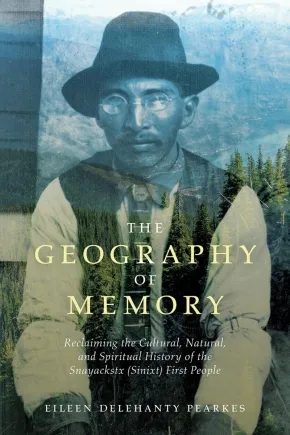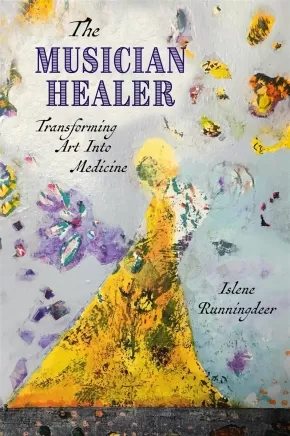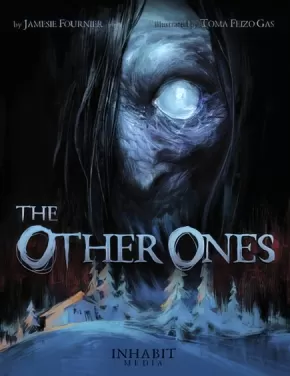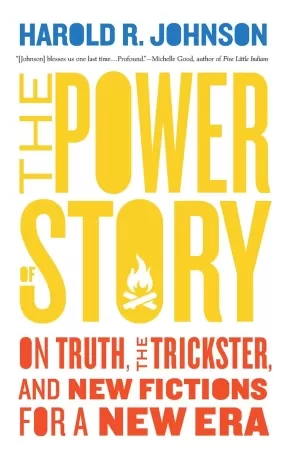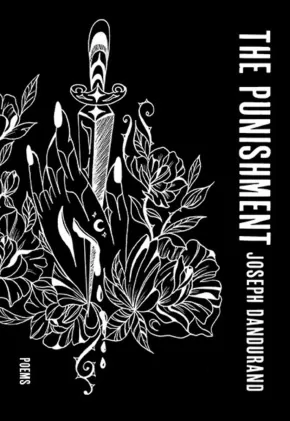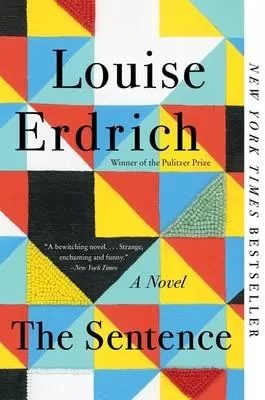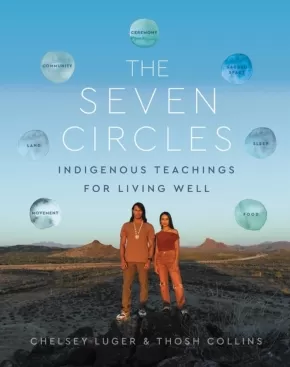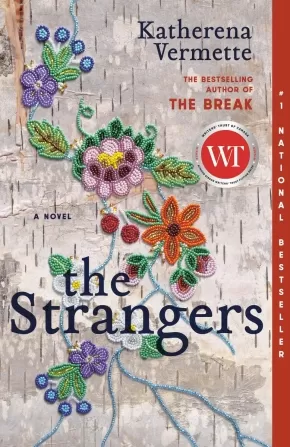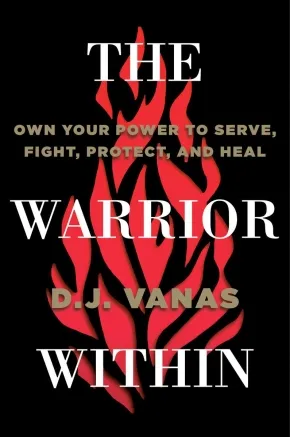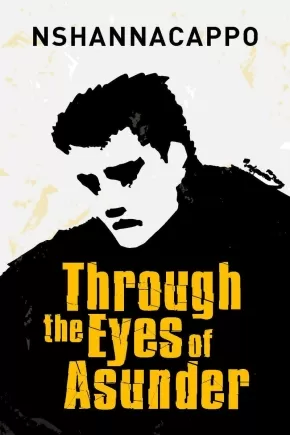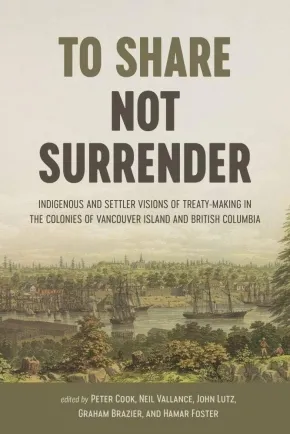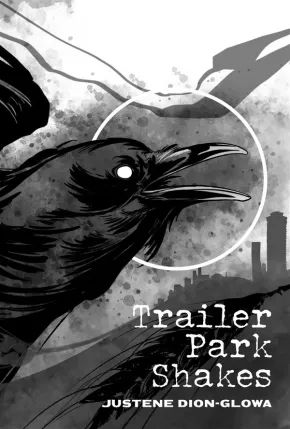
Indigenous Peoples
571
-
585
of
1343 Results;
Sort By
Go To
of 90
The Geography of Memory: Reclaiming the Cultural, Natural and Spiritual History of the Snayackstx (Sinixt) First People - 2nd Edition
$30.00
Format:
Paperback
Text Content Territories:
Indigenous Canadian; First Nations; Salish; Interior Salish; Sinixt;
ISBN / Barcode: 9781771605212
Synopsis:
Synopsis:
A provocative, historical investigation into the displacement of the Snayackstx (Sinixt) First People of British Columbia’s West Kootenays.
This compact book records a quest for understanding, to find the story behind the Snayackstx (Sinixt) First Nation. Known in the United States as the Arrow Lakes Indians of the Colville Confederated Tribes, the tribe lived along the upper Columbia River and its tributaries for thousands of years. In a story unique to First Nations in Canada, the Canadian federal government declared them “extinct” in 1956, eliminating with the stroke of a pen this tribe’s ability to legally access 80 per cent of their trans-boundary traditional territory.
Part travelogue, part cultural history, the book details the culture, place names, practices, and landscape features of this lost tribe of British Columbia, through a contemporary lens that presents all readers with an opportunity to participate in reconciliation.
Educator Information
Please note that the author of this work is not Indigenous, but the text content is about the Snayackstx (Sinixt) First People. Shelly Boyd, Sinixt/Arrow Lakes Cultural Facilitator provides a Foreword.
In an Introduction to the work, the author notes: "First and foremost, every word of the story of their culture as presented here has been confirmed and accepted as true by the contemporary Sinixt.... Second, because the story also exists within a colonial context, it refers to written materials, published history and textual memories, information that was often recorded by the hand of non-Indigenous People but nonetheless reflects the knowledge of Indigenous generations.... The result is a tapestry, combining threads of history, ethnography, science and personal essays on the natural word.... Sinixit leaders, local historians, and academic experts review[ed] the text prior to publication.... Some non-Indigenous people criticized me for writing about Indigenous People at all, telling me it was not 'my story to tell.' This was, I realize now, a subtle form of silencing. While racism toward Indigenous People still exists across this culture, a groundswell of recognition has begun. In working alongside the Sinixt all these years, I have come to understand that integrating Indigenous perspectives into contemporary culture is not exclusively the responsibility of Indigenous People. As Shelly Boyd so aptly reminds all of us, we, the settlers, need to listen well and with respect. We need to pick up our pens or cameras or drawing pencils, and dig in to help."
It is up to readers to determine if this resource will be useful for their purposes.
Additional Information
280 pages | 6.00" x 8.90" | Paperback
The Musician Healer: Transforming Art into Medicine
$24.95
Format:
Paperback
Text Content Territories:
Indigenous American; Native American; Abenaki (Wabanaki); Mi'kmaq;
Reading Level: N/A
ISBN / Barcode: 9781988824864
Synopsis:
Synopsis:
The Musician Healer resurrects a long-forgotten role for musicians and provides clear guidance for preparation and self-development as a musician healer in order to reactivate this role for the modern world. It begins with the author’s personal musical story that draws upon her Mi’kmaq/Abenaki First Nation and French roots, followed by a section on the history of musician healers from ancient Egypt and India. Runningdeer then explores the energetic aspects of music healing, especially the quality of personal energies that a musician channels through her music, and how to elevate and emanate those vibrations for positive healing outcomes.
“There are a few very particular aspects of healing for myself that I’ve enjoyed these past twenty plus years, while developing my work as Musician Healer. Yours will be different, perhaps, depending upon what your own inner challenges to growth have been. Our stories are different, after all ... I now know who I am, and why I’m here. I love and accept all my strengths, peculiarities and tender places. And feel great confidence in what I have to offer the world.” — Islene Runningdeer, 2022
Reviews
"Runningdeer writes like a spider spinning her web—circling and diving, drawing sticky connections and mind-expanding shapes. This book is an offering to a suffering world and to musicians who are yearning to transmit good through their gifts." — Mary Bonhag, Artistic Director, Scrag Mountain Music
"The beauty of the objective frequency in music to provide healing and love is excellently transmitted in this unique text. A heartfelt and genuine connection with ancient lifetimes and ancestors brings moments of perfection and clarity, as the sum total of everything acquired is realized in the present moment. Runningdeer brings lessons of giving and awareness in service to the light." — Julian Hobson Energy Healer and Editor of Embrace Your Divine Plan (2023)
Additional Information
208 pages | 6.00" x 9.00" | Paperback
The Other Ones
$19.95
Artists:
Format:
Hardcover
Reading Level: N/A
ISBN / Barcode: 9781772274219
Synopsis:
Synopsis:
“The Net” features a girl and her mother, known only as the mother and the daughter, who arrive at their secluded cabin on a frozen lake to find their fishing net has been attacked, a massive hole ripped through the middle. After the net has been mended and the night’s catch eaten, the daughter sits awake playing with a bit of leftover netting string. When she was a girl, her grandmother taught her to make string figures—just as her mother had taught her—a game played by Inuit for generations, but a game not to be taken lightly . . . as the daughter plays late into the night, and the mother sleeps, other monstrous forces are soon awakened from beneath the frozen lake.
In “Before Dawn” a young boy runs out onto the tundra to play with his new friend by his side, venturing far beyond his mother’s rule that he not stray past the inuksuk on the horizon. The boy’s friend beckons him farther and farther, and the farther they get from home, the more the friend seems to change . . . and shift . . . until he is no longer human at all. Horrified, the boy listens to the creature’s proposition: return home before dawn, or be lost forever to the other side . . .
Complemented by colour illustrations from illustrator Toma Feizo Gas, The Other Ones is a fresh take on modern horror by an exciting new Inuit voice.
Educator Information
Short stories.
Additional Information
50 pages | 6.75" x 8.75" | Hardcover
The Peacekeeper: A Novel
$20.95
Format:
Paperback
Text Content Territories:
Indigenous American; Native American; Anishinaabeg; Ojibwe (Chippewa);
Reading Level: N/A
ISBN / Barcode: 9781542036511
Synopsis:
Synopsis:
Against the backdrop of a never-colonized North America, a broken Ojibwe detective embarks on an emotional and twisting journey toward solving two murders, rediscovering family, and finding himself.
North America was never colonized. The United States and Canada don’t exist. The Great Lakes are surrounded by an independent Ojibwe nation. And in the village of Baawitigong, a Peacekeeper confronts his devastating past.
Twenty years ago to the day, Chibenashi’s mother was murdered and his father confessed. Ever since, caring for his still-traumatized younger sister has been Chibenashi’s privilege and penance. Now, on the same night of the Manoomin harvest, another woman is slain. His mother’s best friend. This leads to a seemingly impossible connection that takes Chibenashi far from the only world he’s ever known.
The major city of Shikaakwa is home to the victim’s cruelly estranged family—and to two people Chibenashi never wanted to see again: his imprisoned father and the lover who broke his heart. As the questions mount, the answers will change his and his sister’s lives forever. Because Chibenashi is about to discover that everything about their lives has been a lie.
Reviews
“An excellent example of an imagined alternative North America where restorative justice is at the forefront, and with characters who are well-developed, this is a great debut from an author to watch.” —Shondaland
Additional Information
318 pages | 5.50" x 8.25"
The Power of Story: On Truth, the Trickster, and New Fictions for a New Era
$22.95
Format:
Paperback
Text Content Territories:
Indigenous Canadian; First Nations; Cree (Nehiyawak); Woodland Cree; Rocky Cree; Montreal Lake Cree;
Grade Levels: 12; University/College;
ISBN / Barcode: 9781771964876
Synopsis:
Synopsis:
Award-winning Indigenous author Harold R. Johnson discusses the promise and potential of storytelling.
Approached by an ecumenical society representing many faiths, from Judeo-Christians to fellow members of First Nations, Harold R. Johnson agreed to host a group who wanted to hear him speak about the power of storytelling. This book is the outcome of that gathering. In The Power of Story, Johnson explains the role of storytelling in every aspect of human life, from personal identity to history and the social contracts that structure our societies, and illustrates how we can direct its potential to re-create and reform not only our own lives, but the life we share. Companionable, clear-eyed, and, above all, optimistic, Johnson’s message is both a dire warning and a direct invitation to each of us to imagine and create, together, the world we want to live in.
Reviews
"Recently in conversation with a friend I remarked that the whole world is a story. Harold Johnson fills that phrase with profound meaning in The Power of Story as he takes ancient figures and modernizes their storied wit and role in creating the worlds we perceive and the boundaries we need. Harold blessed us one last time with a profound conversation on the role of story in every aspect of our lives."—Michelle Good, author of Five Little Indians
“The Power of Story begins where all great stories begin: around a fire. Harold Johnson gives us a seat at the fire to listen and take into ourselves some spellbinding, bracing, and provocative stories told with a view to healing and transforming. As Harold writes ‘It’s starting to get darker now, and a bright fire will help.’ The Power of Story is that bright fire. And it will help. His final book is a balm for our times.”—Shelagh Rogers
Additional Information
192 pages | 5.00" x 8.00" | Paperback
The Punishment
$21.95
Format:
Paperback
Text Content Territories:
Indigenous Canadian; First Nations; Salish; Coast Salish; Sto:lo; Kwantlen;
Reading Level: N/A
ISBN / Barcode: 9780889714328
Synopsis:
Synopsis:
the tales are of loss and forgiveness
and they fill the room
The Punishment is the latest addition to the oeuvre of prolific Kwantlen writer Joseph Dandurand, whose stunning previous collection, The East Side of It All, was shortlisted for the Griffin Poetry Prize.
In The Punishment, Joseph Dandurand's now-familiar storyteller's voice wrangles trauma, grief, forgiveness and love. His poems illustrate the poet's solitary existence. With scenes of residential school, the psych ward, the streets and the river, Dandurand reveals an arduous journey: one poet's need to both understand his life and find ways to escape it. Through poetry, he shares with us all his lovers. He shares the streets. He shares what he sees: the great eagles and small birds; his culture and teachings; the East Side; self-pity; the deception of love; the deception of hate; sasquatches; spirits; and his people, the Kwantlen.
At root, The Punishment is about survival. Dandurand's poems will show you disease. They'll show you cedar. They'll show you music. They'll show you shadows. They'll show you forgiveness, and they'll show you punishment.
Reviews
"Hands down, Joseph Dandurand is one of my all-time favourite writers ... Good Lord―what a voice!" — Richard Van Camp,
Additional Information
144 pages | 5.50" x 8.00" | Paperback
The Sentence (PB)
$24.00
Format:
Paperback
Text Content Territories:
Indigenous American; Native American; Anishinaabeg; Ojibwe (Chippewa);
ISBN / Barcode: 9780062671134
Synopsis:
Synopsis:
In this unusual and forceful novel, Pulitzer Prize and National Book Award–winning author Louise Erdrich creates a wickedly funny ghost story, a tale of passion, of a complex marriage, and of a woman's relentless errors.
The Sentence asks what we owe to the living, the dead, to the reader and to the book. A small independent bookstore in Minneapolis is haunted from November 2019 to November 2020 by the store's most annoying customer. Flora dies on All Soul's Day, but she simply won't leave the store. Tookie, who has landed a job selling books after years of incarceration that she survived by reading "with murderous attention," must solve the mystery of this haunting while at the same time trying to understand all that occurs in Minneapolis during a year of grief, astonishment, isolation, and furious reckoning.
The Sentence begins on All Soul’s Day 2019 and ends on All Soul’s Day 2020. Its mystery and proliferating ghost stories during this one year propel a narrative as rich, emotional, and profound as anything Louise Erdrich has written.
Additional Information
400 pages | 5.31" x 8.00" | Paperback
The Seven Circles: Indigenous Teachings for Living Well
$36.99
Format:
Hardcover
Text Content Territories:
Indigenous American; Native American; Sioux; Pima (Akimel O'odham); Osage; Haudenosaunee (Iroquois); Seneca; Cayuga; Anishinaabeg; Ojibwe (Chippewa); Turtle Mountain Anishinaabe;
Grade Levels: 12; University/College;
ISBN / Barcode: 9780063119208
Synopsis:
Synopsis:
In this revolutionary self-help guide, two beloved Native American wellness activists offer wisdom for achieving spiritual, physical, and emotional wellbeing rooted in Indigenous ancestral knowledge.
When wellness teachers and husband-wife duo Chelsey Luger and Thosh Collins founded their Indigenous wellness initiative, Well for Culture, they extended an invitation to all to honor their whole self through Native wellness philosophies and practices. In reclaiming this ancient wisdom for health and wellbeing—drawing from traditions spanning multiple tribes—they developed the Seven Circles, a holistic model for modern living rooted in timeless teachings from their ancestors. Luger and Collins have introduced this universally adaptable template for living well to Ivy league universities and corporations like Nike, Adidas, and Google, and now make it available to everyone in this wise guide.
The Seven Circles model comprises interconnected circles that keep all aspects of our lives in balance, functioning in harmony with one another. They are:
- Food
- Movement
- Sleep
- Ceremony
- Sacred Space
- Land
- Community
In The Seven Circles, Luger and Collins share intimate stories from their life journeys growing up in tribal communities, from the Indigenous tradition of staying active and spiritually centered through running and dance, to the universal Indigenous emphasis on a light-filled, minimalist home to create sacred space. Along the way, Luger and Collins invite readers to both adapt these teachings to their lives as well as do so without appropriating and erasing the original context, representing a critical new ethos for the wellness space. Each chapter closes with practical advice on how to engage with the teachings, as well as wisdom for keeping that particular circle in harmony with the others.
With warmth and generosity—and 75 atmospheric photographs by Collins throughout—The Seven Circles teaches us how to connect with nature, with our community, and with ourselves, and to integrate ancient Indigenous philosophies of health and wellbeing into our own lives to find healing and balance.
Reviews
“A life-changing holistic guide to wellness rooted in empowerment, resiliency, and ‘good medicine.’ This book is for any human being searching for wellness solutions in a chaotic world, a true antidote to colonization.” — Vina Brown, Indigenous Scholar, Entrepreneur, Artist, and Professor of Indigenous Studies at Northwest Indian College
“The Seven Circles is a true innovation in Indigenous thought; it brings our shared heritage and traditional teachings to life. Truly inspiring. Readers will find their journey to be a motivating guide for self-transformation.” — Taiaiake Alfred, Mohawk Philosopher
“While the term ‘wellness’ has been co-opted and diluted by (primarily white) social media influencers in recent years, Luger and Collins are recentering the conversation around how to use Indigenous cultural values, foods, and modalities of movement as tools for spiritual, mental, physical, and emotional healing.” — Vanity Fair
“[Two of the] faces in the health and wellness scene that are pushing for inclusivity, justice, and kindness, toppling old conventions to make their own…Luger and Collins rewrite modern narratives regarding Native health while addressing complex histories and ongoing disparities.” — Outside magazine
“Spellbinding. This may be the first book I’ve ever read that made me stop and decide, “I’m making this change now!” Seven Circles opened my eyes to a way of life that is tested by time, guided by nature, and urgently needed today." — Christopher McDougall, author of Born to Run, Natural Born Heroes, and Running with Sherman
“Wisdom abounds in this stimulating offering.” — Publishers Weekly
“Luger and Collins provide a range of sensible, informed, accessible guidance for both small- and large-scale lifestyle changes. An appealing manual for healing the self through Indigenous traditions.” — Kirkus Reviews
Additional Information
256 pages | 7.00" x 9.00" | 75 Colour Photos | Hardcover
The Strangers (PB)
$22.00
Format:
Paperback
Text Content Territories:
Indigenous Canadian; Métis;
ISBN / Barcode: 9780735239630
Synopsis:
Synopsis:
From the bestselling author of The Break comes a staggering intergenerational saga that explores how connected we are, even when we’re no longer together—even when we’re forced apart.
Cedar has nearly forgotten what her family looks like. Phoenix has nearly forgotten what freedom feels like. And Elsie has nearly given up hope. Nearly.
After time spent in foster homes, Cedar goes to live with her estranged father. Although she grapples with the pain of being separated from her mother, Elsie, and sister, Phoenix, she’s hoping for a new chapter in her life, only to find herself once again in a strange house surrounded by strangers. From a youth detention centre, Phoenix gives birth to a baby she’ll never get to raise and tries to forgive herself for all the harm she’s caused (while wondering if she even should). Elsie, struggling with addiction and determined to turn her life around, is buoyed by the idea of being reunited with her daughters and strives to be someone they can depend on, unlike her own distant mother. These are the Strangers, each haunted in her own way. Between flickering moments of warmth and support, the women diverge and reconnect, fighting to survive in a fractured system that pretends to offer success but expects them to fail. Facing the distinct blade of racism from those they trusted most, they urge one another to move through the darkness, all the while wondering if they’ll ever emerge safely on the other side.
A breathtaking companion to her bestselling debut The Break, Vermette’s The Strangers brings readers into the dynamic world of the Stranger family, the strength of their bond, the shared pain in their past, and the light that beckons from the horizon. This is a searing exploration of race, class, inherited trauma, and matrilineal bonds that—despite everything—refuse to be broken.
Reviews
“Katherena Vermette’s The Strangers is a deeply moving story of how colonial institutions continue to bear down on and disrupt the lives of Indigenous women and girls. It is a powerful collective portrait of struggle and resistance, of what it’s like to be in an Indigenous body in twenty-first century Canada. In the end, it adds up to an engrossingly written ode to another kind of care, one against the grain of suffering. A brilliant follow-up!”—Billy-Ray Belcourt, bestselling author of A History of My Brief Body
“The Strangers is a unique and essential triumph of a novel. It is revelatory in its artistry—in its constellating of family against violent separation, in its austere poetics of voice and consciousness. Katherena Vermette has proven once again that she is among the most gifted and relevant writers of our time: someone with everything to teach us about the telling of necessary stories, about grieving the fallen, honouring survival, and revealing the fiercest beauty.” —David Chariandy, award-winning author of Brother and I’ve Been Meaning to Tell You
Additional Information
352 pages | 5.10" x 7.90" | Paperback
The Theory of Crows: A Novel
$24.99
Format:
Paperback
Text Content Territories:
Indigenous Canadian; First Nations; Cree (Nehiyawak);
Reading Level: N/A
ISBN / Barcode: 9781443465168
Synopsis:
Synopsis:
A poignant and evocative novel about the bonds of family and the gifts offered by the land.
When a troubled father and his estranged teenage daughter head out onto the land in search of the family trapline, they find their way back to themselves, and to each other.
Deep in the night, Matthew paces the house, unable to rest. Though his sixteen-year-old daughter, Holly, lies sleeping on the other side of the bedroom door, she is light years away from him. How can he bridge the gap between them when he can’t shake the emptiness he feels inside? Holly knows her father is drifting further from her; what she doesn’t understand is why. Could it be her fault that he seems intent on throwing everything away, including their relationship?
Following a devastating tragedy, Matthew and Holly head out onto the land in search of a long-lost cabin on the family trapline, miles from the Cree community they once called home. But each of them is searching for something more than a place. Matthew hopes to reconnect with the father he has just lost; Holly goes with him because she knows the father she is afraid of losing won’t be able to walk away.
When things go wrong during the journey, they find they have only each other to turn to for support. What happens to father and daughter on the land will test them, and eventually heal them, in ways they never thought possible.
Reviews
“Robertson shines in A Theory of Crows, a multilayered story of love, loss, healing and ultimately belonging. A family on the brink of shattering finds its way through ancient teachings of infinite connection and the roots of truth in the earth’s living memory.” — Michelle Good, author of Five Little Indians, winner of CBC Canada Reads
“In weaving together themes of identity, belonging, grief and land, The Theory of Crows is a novel that approaches rapture.” — Yann Martel, author of The High Mountains of Portugal and Life of Pi
“A brilliantly empathetic story that is both gentle and fierce.” — Thea Lim, author of An Ocean of Minutes
Additional Information
320 pages | 6.00" x 9.00" | Paperback
The Warrior Within: Own Your Power to Serve, Fight, Protect, and Heal
$39.00
Format:
Hardcover
Text Content Territories:
Indigenous American; Native American;
Reading Level: N/A
ISBN / Barcode: 9780593423011
Synopsis:
Synopsis:
A transformational guide to getting yourself right in order to accomplish the work you were meant to do, from speaker, former U.S. Air Force officer, and member of the Ottawa tribe D.J. Vanas.
When faced with an important job, and people depending on you to do it, most of us will give and give until there’s nothing left. But running on empty, even for a worthy cause, only sets you up for failure in the long run. To persevere on the path to success requires more than sheer fearlessness and willpower. It requires what D.J. Vanas calls the warrior spirit, the kind of strength that looks outward but comes from deep within.
Drawing inspiration from Native American philosophy and tradition, The Warrior Within outlines a new model for personal power in the face of overwhelming chaos. A true warrior is not the toughest or bravest person in the room. A true warrior is committed to self-mastery, knows how to navigate change and disruption, transforms setbacks into opportunities for achievement, refuses to quit, and most importantly, always fights for something bigger than the self. With a vast array of stories and examples, from vision quests to treacherous hikes to veterans and service providers at the front lines, Vanas shows how to apply these principles to transform how you show up both for yourself and those around you.
More than an empowerment manual, The Warrior Within is a call to accomplish the world-changing work you were meant for by tapping into the power of the warrior spirit.
Reviews
"The powerful lessons imparted in these chapters will inspire strength, confidence and motivation, so that you can deliver your best in the worst of circumstances—while keeping your sanity and health! I encourage every healthcare giver to read The Warrior Within, for they truly serve, fight, protect and heal every day, often at their own expense."--LeAnn Thieman, author of the Chicken Soup for Nurse’s Soul series and founder of SelfCare for HealthCare®
"I highly recommend The Warrior Within! Through great storytelling, D.J. Vanas shares an often overlooked element of leadership ... taking care of yourself. Our beautiful Anishinaabe teachings emphasize balance in all things. Being a warrior means recognizing your needs and honoring your gifts. Way to go, D.J.!"--Angeline Boulley (Sault Ste. Marie Tribe of Chippewa Indians) New York Times bestselling author of Firekeeper's Daughter
"D.J. Vanas inspires us to find our ‘warrior spirit’ of courage, perseverance, resilience, and teamwork in life’s most fearful times. Your heart will soar like an eagle as you read how ordinary heroes use this inner strength to serve others—and how we can learn to do the same.”--Joseph Pfeifer, FDNY Assistant Chief, retired, author of Ordinary Heroes
“This is it: the book I’ve been waiting for! There isn’t another on the market that applies indigenous principles and ideas in order to expose the warrior in you. A comprehensive, compelling, emotional and amazingly insightful book. I couldn’t put it down. I wish I had this book years ago!"--Juanita Mullen (Seneca), AI/AN Veterans Liaison, Department of Veterans Affairs
“DJ Vanas describes a life of leading and doing through Indigenous identity and values. Combining his personal story with advice, The Warrior Within is more than a leadership book. It is a story of living a life of abundance and rich relationships, with DJ as your terrific guide.”-Cheryl Crazy Bull, President & CEO, American Indian College Fund
Additional Information
256 pages | 5.72" x 8.57" | Hardcover
This House Is Not a Home
$24.00
Format:
Paperback
Text Content Territories:
Indigenous Canadian; First Nations; Dene;
Reading Level: N/A
ISBN / Barcode: 9781773635620
Synopsis:
Synopsis:
After a hunting trip one fall, a family in the far reaches of so-called Canada’s north return to nothing but an empty space where their home once stood. Finding themselves suddenly homeless, they have no choice but to assimilate into settler-colonial society in a mining town that has encroached on their freedom.
An intergenerational coming-of-age novel, This House Is Not a Home follows Kǫ̀, a Dene man who grew up entirely on the land before being taken to residential school. When he finally returns home, he struggles to connect with his family: his younger brother whom he has never met, his mother because he has lost his language, and an absent father whose disappearance he is too afraid to question.
The third book from acclaimed Dene, Cree and Metis writer Katłįà, This House Is Not a Home is a fictional story based on true events. Visceral and embodied, heartbreaking and spirited, this book presents a clear trajectory of how settlers dispossessed Indigenous Peoples of their land — and how Indigenous communities, with dignity and resilience, continue to live and honour their culture, values, inherent knowledge systems, and Indigenous rights towards re-establishing sovereignty. Fierce and unflinching, this story is a call for land back.
Reviews
"Absolutely exquisite. Told with such love and gentle ferocity, I’m convinced This House Is Not A Home will never leave those who read it. I am in awe of what I’ve witnessed here. Mahsi cho, Katlia. Bravo! " — Richard Van Camp author of The Lesser Blessed and Moccasin Square Gardens
Additional Information
192 pages | 5.50" x 8.50" | Paperback
Through the Eyes of Asunder
$17.95
Format:
Paperback
Text Content Territories:
Indigenous Canadian; First Nations; Anishinaabeg; Ojibway; Saulteaux; Rolling River First Nation;
Grade Levels: 12; University/College;
ISBN / Barcode: 9781928120322
Synopsis:
Synopsis:
From epic ventures into mythic and fantastical tales to the everyday trials of getting the laundry done, NShannacappo’s debut poetry collection follows many journeys through darkness to hope, healing and heroism. Pure and hauntingly beautiful turns of phrase sound out in the voices of angels, monsters and demons, mythic characters, and the sometimes wry, sometimes grieving voice of a man once broken in heart, spirit, and mind. Through the Eyes of Asunder begins and ends with hope, and takes the reader through sorrow and sadness to bright moments of happiness and love.
Reviews
“Neal Shannacappo is a spiritual thinker. The poetry and life’s perspectives he shares in this collation remind us of the unconditional love and support one can access through the Creator-given learning ways we as human beings are blessed to be born with. Read his words! Feed them to your heart, digest them spiritually and you will benefit from the medicine intended in every word and stanza.”—Albert Dumont, 2021–2022 Poet Laureate for Ottawa and author of Sitting by the Rapids.
“Reading this book, it felt many times like I had stumbled upon a shoebox filled with letters not sent and journals put away for safekeeping. You feel like you shouldn’t pry, but you just can’t help yourself. It was a wonderful read.”—John Brady McDonald, author of KITOTAM
Additional Information
143 pages | 6.00" x 9.00" | 6 illustrations | Paperback
To Share, Not Surrender: Indigenous and Settler Visions of Treaty Making in the Colonies of Vancouver Island and British Columbia
$37.95
Editors:
Format:
Paperback
Text Content Territories:
Indigenous Canadian; First Nations; Salish; Coast Salish; Songhees (Lekwungen); Saanich (WSANEC); Nuu-chah-nulth (Nootka); Huu-ay-aht;
ISBN / Barcode: 9780774863834
Synopsis:
Synopsis:
Too often, history and knowledge of Indigenous-settler conflict over land take the form of confidential reports prepared for court challenges. To Share, Not Surrender offers an entirely new approach, opening scholarship to the public and augmenting it with First Nations community expertise.
The collection appraises the historical and present-day relevance of treaty-making in the colonies of Vancouver Island and British Columbia. The authors take us back to when James Douglas and his family relocated to Fort Victoria on Vancouver Island in 1849, critically tracing the transition from treaty-making in the colony of Vancouver Island to reserve formation in the colony of British Columbia. Informed by cel’aṉ’en – “our culture, the way of our people” – this multivocal work explicitly addresses the tensions between academic research, Indigenous knowledge, and local experience. The collection includes essays, translations/interpretations of the treaties into the SENĆOŦEN and Lekwungen languages, and contributions by participants of the Songhees, Huu-ay-aht, and WSANEC peoples.
The chapters demonstrate that the continuing inability to arrive at equitable land-sharing arrangements stem from a fundamental absence of will with respect to accommodating First Nations world views. To Share, Not Surrender is an attempt to understand why, and thus to advance the urgent task of reconciliation in Canada.
The multiple perspectives presented in this important work will find equally diverse audiences: Canadian historians, scholars and students of Indigenous studies, ethno-historians, legal historians, lawyers practising in the areas of Aboriginal law, and researchers preparing historical reports on First Nation land claims.
Reviews
"The past is with us and history matters. Read To Share Not Surrender as a great example of how there can be different interpretations of the past." — Robin Fisher, The British Columbia Review
"After James Douglas negotiated treaties on Vancouver Island, he never made another in BC. Why not? Some of the foremost experts in the field work here to answer this question, analyzing Douglas’s policies and their lasting impact on BC First Nations’ continuing battle with rights and title." — Daniel Boxberger, professor emeritus, anthropology, Western Washington University
"The connection that To Share, Not Surrender makes between the events of the 1850s and 1860s and the modern-day treaty process in British Columbia is extremely valuable. It helps the reader develop a better understanding, not only of colonial history, but also of the relevance of Indigenous law to territorial claims today." — Kent McNeil, author of Flawed Precedent: The St. Catherine’s Case and Aboriginal Title
Educator Information
Contributors: Keith Thor Carlson, Robert Clifford, Emchayiik Robert Dennis Sr., STOLCEL John Elliott Sr., Elmer George, Stephen Hume, Maxine Hayman Matilpi, Kevin Neary, Adele Perry, Sarah Pike, Chief Ron Sam, and Laura Spitz
Additional Information
330 pages | 6.00" x 9.00" | Paperback
Trailer Park Shakes
$22.95
Format:
Paperback
Text Content Territories:
Indigenous Canadian; Métis;
Grade Levels: 12; University/College;
ISBN / Barcode: 9781771315906
Synopsis:
Synopsis:
The poems in Trailer Park Shakes are direct and vernacular, rooted in community--a working-class Métis voice rarely heard from.
These poems, while dreamlike and playful, bear unflinching witness to the workings of injustice--how violence is channeled through institutions and refracted intimately between people, becoming intertwined with the full range of human experience, including care and love. Trailer Park Shakes is a book that seems to want to hold everything--an entire cross-section of lived experience--written by a poet whose courage, attention, and capacity to trace contradiction inspire trust in her words' embrace. Dion-Glowa's poems are quietly philosophical, with a heartfelt, self-possessed politic.
Reviews
"Dion-Glowa's voice crackles with frank, startling insight." — Sachiko Murakami, author of Render
"As I read this work, I was taken back, time and again, to those days when I was a young street poet who had so much to say at a time where it felt like no one was listening. There are many times when sentiment needs to be expressed in the most bold and unapologetic way it can, and the brashness and frank delivery found in this work is the hallmark of a collection that should and will rattle your cage and shine a light where it is needed. These are not exploitative poems, nor are they the Victim Impact Statement of a wounded spirit. This collection is the chronicle of an eyewitness to reality, without compromise." — John Brady McDonald, Nehiyawak-Metis poet and artist, author of Kitotam
Additional Information
96 pages | 5.75" x 8.50" | Paperback
Sort By
Go To
of 90

